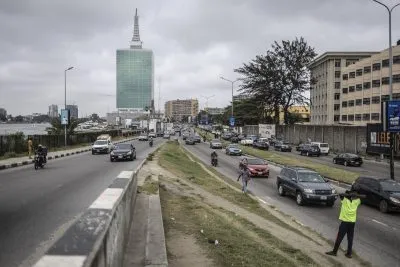The city of Cape Town is undergoing a makeover. While it wants to retain its beauty and great lifestyle, it now wants to attract investments and become a business centre as well. Tom Jackson tells the story.
Cape Town is seen by most South Africans and international visitors as a tourist destination. The total number of arrivals at Cape Town International Airport in 2013 was over 4.1m. The visitors come to take the cable car up Table Mountain, hike to Cape Point, visit Robben Island, enjoy the beaches and some of the finest food and wine in the world.
According to the most recent Cape Town Tourism Industry Performance Report, December last year was a record-breaking month for all five of the major Cape Town attractions, with Cape Point and the Table Mountain Aerial Cableway both reporting more than 100,000 visitors and Kirstenbosch National Botanical Garden seeing record growth.
The city’s share of foreign arrivals into South Africa has been between 91% and 97% overt the last five years, with the economic value of tourism in Cape Town estimated at R14.6bn ($1.32bn) in 2012, the last year for which figures are available. This huge popularity has earned Cape Town the reputation of being a ‘weekend city’ among South Africans, while Johannesburg, the business capital, is well established as the ‘week city’. Johannesburg is the most powerful commercial centre in Africa, alone generating 16% of South Africa’s GDP and employing 12% of its workforce. The city is home to 74% of corporate headquarters in South Africa.
But Tim Harris, former shadow Finance Minister for the opposition Democratic Alliance (DA) party is battling hard to change this image of Cape Town.
The idea that Johannesburg is for the week and Cape Town is for the weekend is one that Cape Town is fighting to change. In May last year, Harris left national politics to become head of investments for the City of Cape Town. In December, it was announced that he would be leaving that post in March 2015 to head up Wesgro, the province’s trade and investment promotion agency.
Harris’ current job is to position Cape Town, and the Western Cape generally, as a destination for investment as well as tourism, with a focus on job creation. Shrugging off the ‘weekend city’ tag is central to these ambitions, and something he admits will be a challenge.
“When you find yourself running a city that is more famous for the way it looks than the businesses based there, or when creativity is really valued but for profitability look elsewhere, that is really a challenge,” he says. “We are trying to take that story and flip it on its head.”
Harris, however, believes the beauty and lifestyle that attract tourists to Cape Town could also play a part in attracting business, so long as the city works to provide the infrastructure and conditions necessary for businesses to be successfully based out of Cape Town.
“The biggest companies in South Africa are in Johannesburg, but we’re going to grow the biggest companies of tomorrow in Cape Town,” he says “Entrepreneurs that build those companies don’t want to be in big, out of control sprawling cities. They want to be in a beautiful city with a great lifestyle and available skills.”
It would be unfair to say that Cape Town is starved of investment. It is most obviously in the tourism industry, with at least 11 hotel projects providing an estimated 2,102 rooms in total currently under way and scheduled to open within the next four years. But Harris is determined on building up a different type of industry in Cape Town – technology.
The opportunity for tech in Cape Town is clear. Research late last year by job-search engine Adzuna found that the city is the top hiring hub in the country for startup and tech firms. More than half of South Africa’s startup jobs are advertised in Cape Town, compared to 34% in Johannesburg.
This growing entrepreneurial reputation, boosted by the assistance of the Silicon Cape Initiative and the technical education offered by Western Cape universities, has put Cape Town ahead of the game in technology.
The sheer number of startups in the city is demonstrated by the Mapped in Cape Town initiative, which aims to map the startup ecosystem and show the position of startups, investors, co-working spaces and Wi-Fi hotspots within the city.
Harris says City Hall is aware Cape Town has a real opportunity to turn itself into a technological hub, and the city government is doing all it can to support the growth of the industry.
Intersection of tech and opportunity
“If you’re looking to make money from tech in Africa, then you have to be in Cape Town,” he says. “We sit at the intersection of technology and African opportunity. From the city’s side, we’re investing in building the ecosystem.”
This investment has so far focused on infrastructure, with the city aiming to put in place a fibre-optic network to serve businesses and areas poorly served by broadband connectivity by private service providers. The rollout of this network is half complete, though the City of Cape Town says it has reached the point where it is robust and extensive enough to be leveraged off by the private sector.
The network now connects 171 government and city buildings in Cape Town, and the city has licensed eight third-party service providers, which it says is a major step forward in facilitating access to a high-speed broadband network. The network, Harris and his colleagues believe, will help drive economic growth and development.
R222m ($20m) has been set aside over three years towards the rollout of broadband infrastructure throughout the metro, part of a R1.3bn ($117m) programme designed to complete the task over the next seven years. The Western Cape government believes internet access is critical for economic development and is willing to rollout a number of free Wi-Fi spots across the province, designed at encouraging entrepreneurship.
The roll outs have come through a partnership with non-profit free Wi-Fi provider Project Isizwe, and are aimed at connecting more than 90,000 residents to wireless internet.
Province premier, Helen Zille says the free Wi-Fi zones offer residents the “opportunity to connect to the internet to access a range of opportunities including finding jobs, start and expand businesses and complete school projects.”
Zille says: “I encourage everyone to take advantage of this new facility and the range of economic opportunities it will provide access to.”
Minister of Economic Opportunities, Alan Winde said there were going to be “huge opportunities on the back of broadband connectivity in creating this ecosystem”, which the government was committing billions of rands to. “What I’m interested in is how many people are going to be creating businesses using that,” he adds.
Winde said the local government was also looking to cut red tape for businesses in Cape Town and is launching a scheme which will encourage business people to let it know where they were running into blockages.
“If you ask government to tell government where blockages are, you’re not going to find them. If we want to remove red tape I want you to engage with me and tell me where the blockages are,” he says.
Harris says the city is piloting an open data policy to give business people easier access to information related to their activities and on running businesses in Cape Town.
“We are overhauling our systems to make them more citizen-centric. And we’re supporting the broader tech community,” he says.
Though the city, and the province as a whole will always be affected by broader national government policies – Harris has been critical of new visa regulations that he says will hinder Cape Town’s hopes of attracting investment – the city’s plan to roll out cheaper, faster connectivity to its citizens, businesses and entrepreneurs is a bold one. With this rollout, it is putting its hopes on attracting the necessary investment to shed Cape Town’s ‘weekend city’ reputation.
Want to continue reading? Subscribe today.
You've read all your free articles for this month! Subscribe now to enjoy full access to our content.
Digital Monthly
£8.00 / month
Receive full unlimited access to our articles, opinions, podcasts and more.
Digital Yearly
£70.00 / year
Our best value offer - save £26 and gain access to all of our digital content for an entire year!

 Sign in with Google
Sign in with Google 






